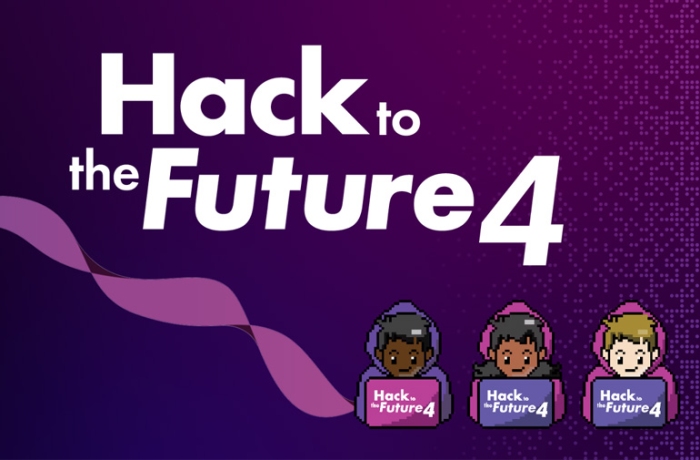Why a hacker mindset is needed to transform financial services
For many of us, access to financial services is something we may take for granted. From mobile and online banking capabilities, from which we can manage our finances, credit cards, and insurance, to a multitude of options when it comes to making point-of-sale payments,, financial services can be at our fingertips in seconds. But this is not the case for many. Today, 1.6 billion adults across the globe are unbanked, and many more are under-banked.
It’s a shocking figure that starkly shows a distinct level of inequality. When a simple loan or the existence of a rudimentary credit history can provide lifelines to millions, we have to come together to drive new and alternative solutions that broaden acceptance criteria and access. Increasingly, innovators in this space, including fintechs, traditional and alternative lenders, and banks are looking at how to solve these problems. It takes proactivity and innovation at speed.
We can hack it
One way to ramp up innovation in financial services is the creation of events and opportunities where great minds can come together to drive change.
Take hackathons as an example. These events are not only a chance for participants to test and exhibit their technical and creative potential; they are crucibles of innovation. Sometimes, a simple concept is enough to fire the imagination and establish new avenues of essential exploration. Over the last year, for example, much has been written about how we might eliminate bias in decision-making algorithms in financial services, but it wasn’t until the question of bias in AI was first raised that the effect of these outcomes was brought into focus.
Today, we have a clear understanding of the ways in which bias can affect society, and we are now able to implement the data practices and technical expertise to reduce it. But getting to that point relied on open communities discussing ideas and developing technical solutions. In short, collaboration and engagement across the financial services ecosystem is key—and while we may not have completely solved the problem of bias, its elimination is now a driving principle when it comes to the development and management of models.
Throughout history, innovation has relied on pushing boundaries, so formalising the effort to meet our greatest challenges is a worthy endeavour for any organisation or individual. Hackathons offer an opportunity to address the most pressing problems of our time and are where good intentions, technology, and talent converge. They help us to discover what’s possible, as well as what’s conceivable. But it’s not just in these circumstances that we need to be thinking innovatively. For any organisation, innovation should be embedded within the very fabric of its corporate culture and employee DNA . It’s essential that we identify the areas where we can effect change and create a more inclusive financial services ecosystem.
Three key challenges in 2022: ESG, DeFi, and embedded finance
Financial services is undergoing a transformation that is geared towards financial sustainability, inclusion and empowerment.
In the fourth edition of our global fintech hackathon, Hack To The Future, we want to set out the three areas of focus that we believe will enable this transformation: Environmental, social, and governance (ESG), decentralized finance (DeFi) and embedded finance. Here’s why we believe they must be front and centre for all:
1. ESG
ESG is the natural place to start any conversation around transforming financial services for the better. To truly establish ESG as an integral component of the ecosystem, it’s essential that collaboration across industries, the public and private sectors, and financial services organisations occurs. Think back to the stark figure I shared at the beginning of this article. it is simply unacceptable.
2. Decentralized finance
Decentralized finance is the use of technology to eliminate the traditional intermediaries that might block access to financial services. NFTs and cryptocurrencies could be, for many, the key enablers of financial liberation. They prioritize accessibility and open up a world of direct peer-to-peer interaction and exchange that goes far beyond that which is enabled by traditional financial services. DeFi delivers increased autonomy and the potential use cases are both compelling and liberating. For those without access to bank accounts and insurance, for example, DeFi solutions could provide an essential bridge to more conventional methods.
3. Embedded finance
Another way we can drive access and engagement with financial services is by increasing their availability through other channels. Third-party applications and interfaces that offer contextual banking services at the precise moment they are needed deliver a more valuable customer experience and there are significant opportunities for innovation here.
Technology is a liberating force in the world when applied with passion and purpose. It’s for this reason that Finastra is inviting developers, data scientists and innovators of all stripes and backgrounds to uncover compelling solutions that address these challenges and create a better financial future for all.
It’s great for us to be partnering with Finextra around Hack to the Future 4 and to be using their platform to speak to the industry and beyond. Over the next few weeks, you’ll see reports on Finextra discussing the hack experience, solutions created and the winning submissions. Each winning team will record a video interview, providing the opportunity to tell their story and explain their solution to Finextra’s 700,000 monthly readers. Whether celebrating success or kickstarting a new startup, becoming visible in the industry is a great prize.
Everybody is welcome, techie or not: our hack to the future movement is OPEN by default.
#HackToTheFuture 4 is now open. We believe everyone has a role to play in redefining the future of finance. Register here: https://fintech.devpost.com.

